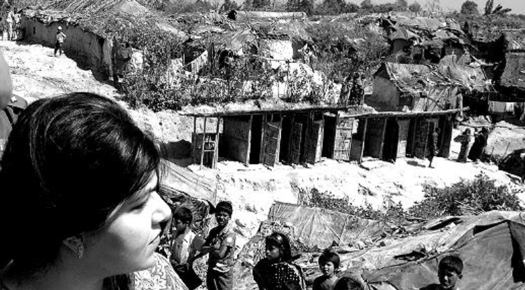
Ethnic Rohingya have long faced discrimination in Myanmar and are denied citizenship, even though many families have lived there for generations. Since 1999, the United States Commission on International Religious Freedom (USCIRF) has declared Myanmar a “Country of Particular Concern” (CPC) in its annual reports because of its violent practices, lawless abuses, and discriminatory treatment of non-Buddhists. Today, Rohingya Muslims are facing increasing violence and are fleeing by the thousands into neighboring Bangladesh.
Associated Press explains that Burma/Myanmar “refuses to recognize them as one of the country's 135 lawful ethnic minorities, instead calling them Bengalis, with the implication that their native land is in Bangladesh and they are illegally settled in Myanmar.”
The plight of the Rohingya has been drastically complicated by a militant insurgency within the Rohingya community. The group, which is known as ARSA, had its beginnings faraway from Southeast Asia. The insurgents’ first attacks took place in October 2016, when more than a hundred Rohingya men, armed with various weapons, including knives, slingshots, and rifles, attacked police and killed nine officers. In August 2017, the group struck again, attacking a far larger area, which included Buddhist villages, killing many civilians as well as targeting police. Unsurprisingly, the Myanmar response was savage.
Outside Myanmar, and perhaps now Bangladesh, Pakistan is home to the highest concentration of Rohingya in the world, from a previous exodus of Rohingya in the 1970s and ’80s. Pakistan was among the earliest and most strident in condemning the Myanmar government for its offensive, which started after Rohingya militants killed members of the security forces.
Despite the fact that Pakistan condemned the Myanmar persecution, hundreds of thousands of Rohingya migrants there continue to live in desperation. Malnutrition and diarrhea are common among children and there are no hospitals in the slums. Residents said that up to 30 families shared a single tap of water which often flows for less than four hours a day.
Thousands of Rohingya are continuing to stream across the border, with U.N. officials and others demanding that Myanmar halt what they describe as a campaign of ethnic cleansing that has driven nearly 400,000 Rohingya to flee in the past three weeks. That number includes an estimated 240,000 children, UNICEF said in Geneva on Friday. They have gathered many, if not most, without basic food or shelter.
"We had a big house, we are 10 people in the family, but they burned our home," Alam, one of the Rohingya who watched the fire burn from about 500 meters away, said. "My father was a village doctor, we had a medical store. We had land and cattle, all are gone."
U.N. Secretary-General Antonio Guterres on Wednesday described the violence against Rohingya as "ethnic cleansing" which means that there is an organized effort to rid an area of an ethnic group by displacement, deportation or killing.
India is pushing Myanmar both bilaterally and multilaterally to take back Rohingya Muslim refugees who fled the Buddhist-majority nation following the ethnic violence, a top aide of Bangladesh Prime Minister quoted External Affairs Minister Sushma Swaraj as saying. India rushed 53 tons of relief materials to Bangladesh and pledged all help to Dhaka in tackling the humanitarian crisis.
Only the united efforts of a large number of countries and providing assistance to a much greater extent may prevent this humanitarian crisis from worsening.
Photo Credits: StaticFlickr
